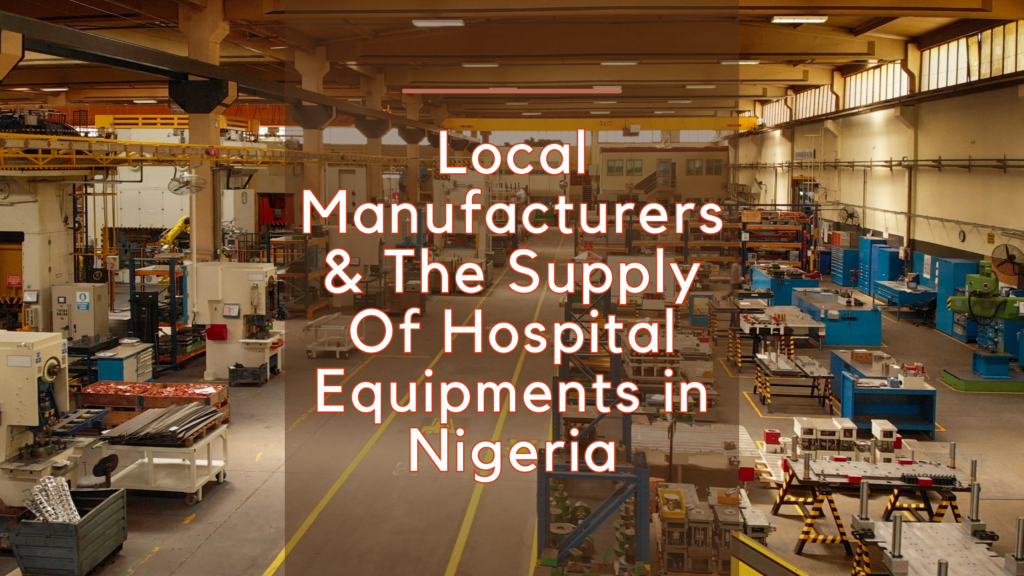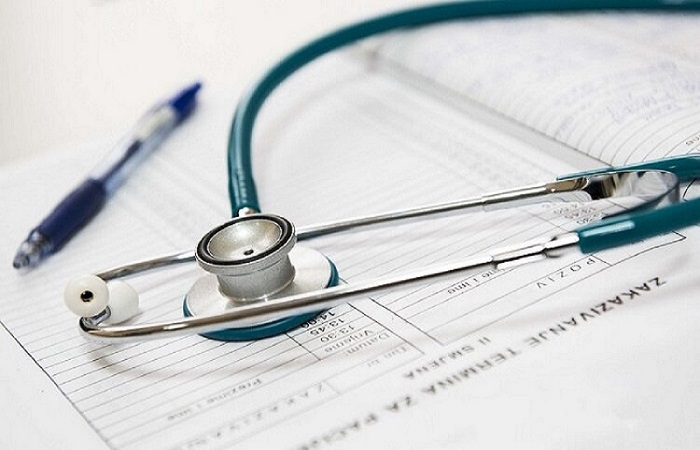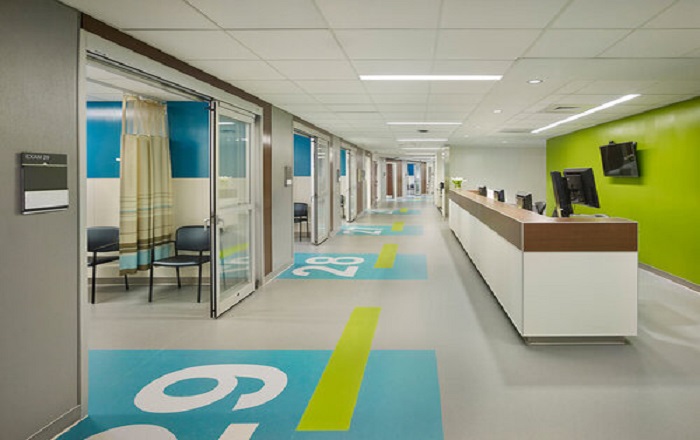Local manufacturing of medical equipment in Nigeria has gained increasing attention, especially after global supply chain disruptions caused by events like the COVID-19 pandemic. These disruptions revealed the risks of relying heavily on imports for essential medical supplies. Local manufacturers are stepping up to fill this gap, providing cost-effective and accessible equipment designed for the specific needs of Nigerian hospitals.
Some of these local manufacturers are:
Jubilee Syringe Manufacturing Company (JSM), in Akwa Ibom State, is a prominent example. JSM began operations in 2017, and became one of the largest syringe manufacturers in Africa, producing about 3 million syringes daily. The company’s operations have met a significant demand for syringes while reducing the country’s reliance on imported medical supplies.
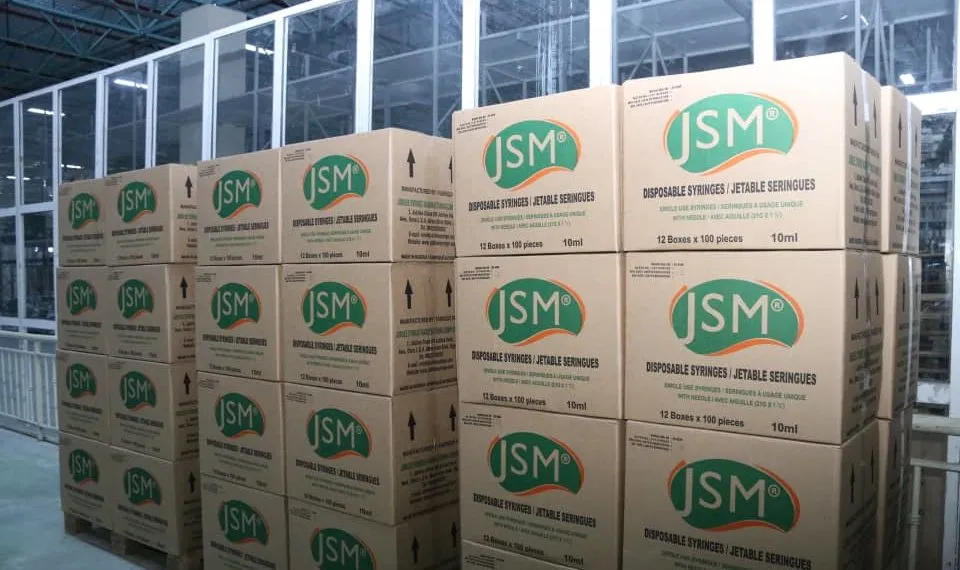
Afrimedical is also one of the largest syringe manufacturing companies in Africa, with an annual capacity of 1.8 billion syringes. Established in 2019, Afrimedical supplies crucial medical solutions, such as sterile hypodermic & auto-disable Immunization syringes, face masks, and sanitizing tunnels which are vital against virus-related infections across Nigeria and Africa.
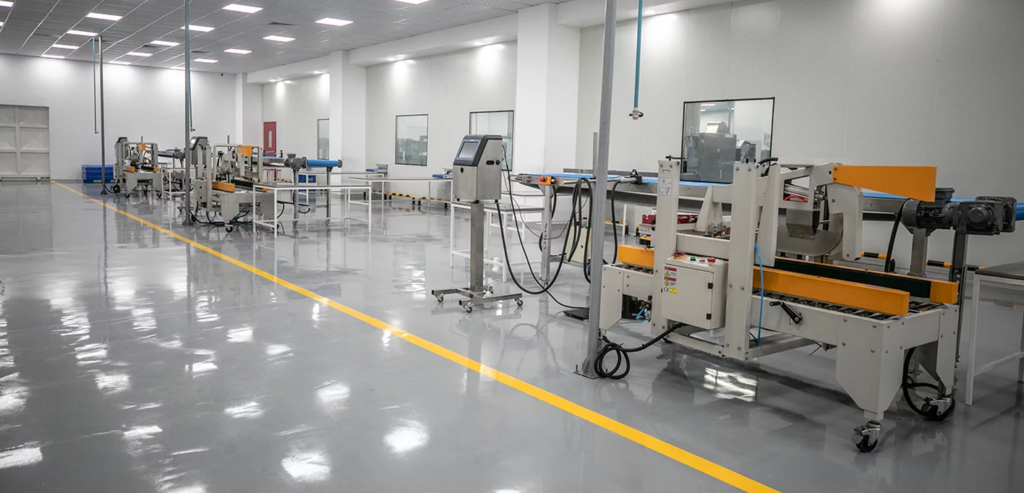
Med-In Pharmaceuticals in Ogun State plays a critical role in Nigeria’s healthcare by producing thousands of bottles of intravenous (IV) fluids per hour, ensuring a reliable and cost-effective supply for hospitals. Similarly, First Medical and Sterile Products, based in Calabar, is a pioneer in manufacturing essential medical items like auto-disable syringes, medical waste incinerators, and safety boxes, which are crucial for enhancing safety and preventing the spread of infectious diseases.
These companies demonstrate the potential for local manufacturers to scale up production and become key players in both regional and global markets while improving healthcare and reducing dependence on imports.
Challenges and the Need for More Local Manufacturers
Despite the successes of these companies, the local manufacturing sector in Nigeria still faces significant challenges.
High production costs.
Inadequate infrastructure.
Limited access to finance and a
Shortage of skilled labor are among the barriers that hinder the growth of the industry.
For instance, Jubilee Syringe Manufacturing Company (JSM) should have remained a success story but the company ceased its operations in 2024, citing foreign exchange (FX) challenges, and stated a return if and when they secured financing.
Moreover, the domestic market is still dominated by imported medical devices, meaning local manufacturers often struggle to compete on price and quality. Addressing these challenges requires joint efforts from both the public and private sectors. The Nigerian government has recognized the importance of developing local manufacturing and has initiated programs like the “Unlocking the Healthcare Value-Chain” to encourage investment in local healthcare manufacturing.

The Role of Healthcare Equipment Suppliers in Bridging the Gap
Until local manufacturing can fully meet the country’s needs, importers and suppliers play a crucial role in ensuring that Nigerian hospitals have access to essential equipment. Companies like Sariva Healthcare and Danhodi Engineering are key players in this space. These companies import and distribute a wide range of medical devices, from advanced diagnostic equipment to everyday consumables, ensuring that healthcare providers can deliver quality care to patients.
Sariva Healthcare, for instance, is one of the leading suppliers of medical devices and hospital setup services in Nigeria. The company sources and supplies a comprehensive range of services and products, including hospital furniture, and surgical instruments from simple stethoscopes to complex diagnostic equipment such as MRI machines. Sariva Healthcare’s role is vital in bridging the gap between demand and supply.
Danhodi Engineering Limited is a medical equipment service and solutions company that partners with and represents an impressive list of international manufacturers of leading medical technology brands. Danhodi Engineering has proffered and delivered advanced medical technology and solutions to government and private health facilities and projects. Their portfolio ensures that hospitals have access to the latest technologies, helping to improve patient outcomes.
The Way Forward: Strengthening Local Manufacturers
For Nigeria to become self-sufficient in medical equipment production, there needs to be a stronger focus on supporting local manufacturers. This support can be in various forms, including providing access to finance, investing in infrastructure, and enhancing technical education to develop the necessary skills for manufacturing. Public-private partnerships can also play a significant role by combining the resources and expertise of both sectors. Moreover, government policies that promote local content and encourage investment in the manufacturing sector are essential. These policies should be aimed at creating an enabling environment for businesses, reducing the barriers to entry for new manufacturers, and ensuring that locally produced equipment meets international standards.
While local manufacturers like Afrimedical, and First Medical and Sterile Products are making significant strides, there is still much to be done. The continued collaboration between local manufacturers, government, and suppliers like Sariva Healthcare and Danhodi engineering is crucial in ensuring that Nigeria’s healthcare system is equipped to meet the needs of its population. As the country works towards self-sufficiency, the importance of expanding local manufacturing capabilities cannot be overstated.

